Tight margins, endless permutations – New phase in Vingegaard vs Pogacar duel
‘It will be a cracking fight, but the Tour won’t be decided after this weekend’ says Jumbo-Visma directeur sportif
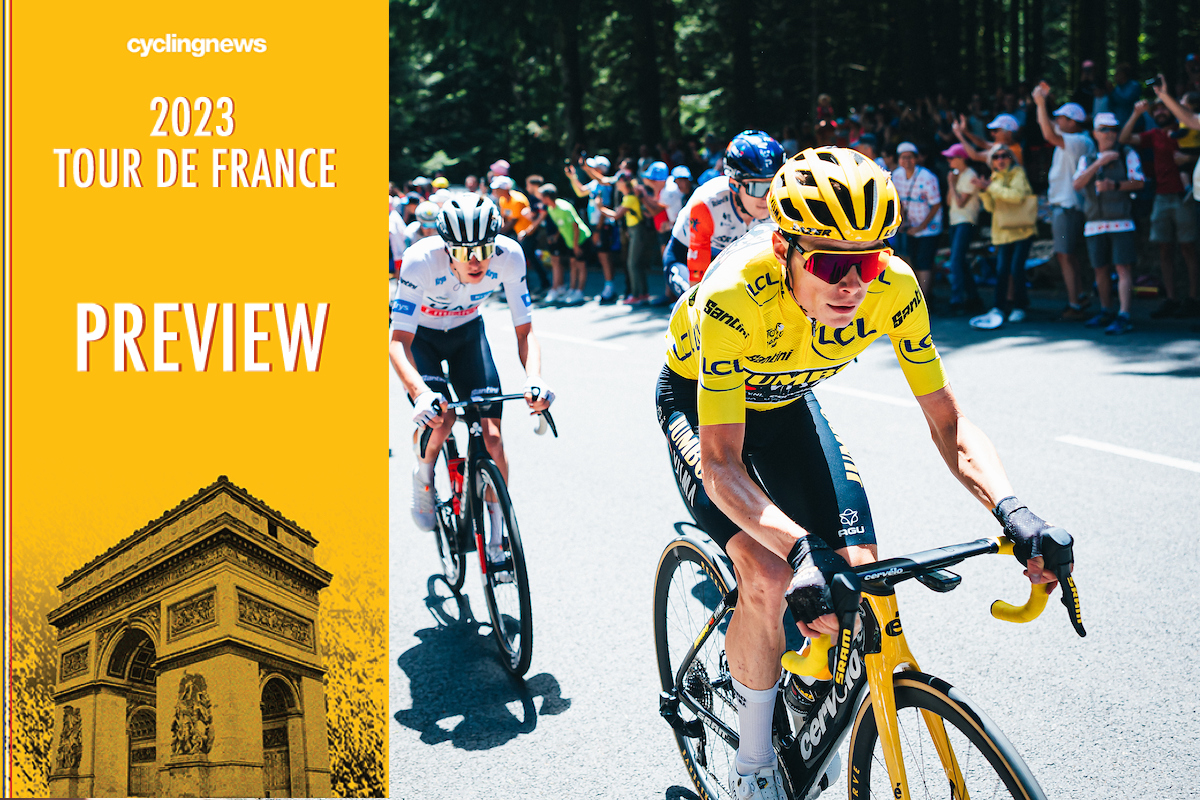
It’s still all in the eye of the beholder. The duel between Jonas Vingegaard and Tadej Pogačar was far too close to call before the 2023 Tour de France got underway and it remains stubbornly unresolved on the eve of the race’s entry into the Jura and Alps.
A mere 17 seconds separate Pogačar from Vingegaard’s yellow jersey after some 2,140 kilometres of racing. That narrow gap at this advanced point is hardly surprising given how little seemed to divide the two favourites in the build-up to the race, yet it’s a deceptive one too.
Despite the tight margins, this race has been anything but deadlocked, with Vingegaard and Pogačar each enjoying moments of supremacy in the opening week. The defending champion threatened to turn the race into an exhibition with his show of force on the Col de Marie Blanque, only for Pogačar to balance the books somewhat with his clear win at Cauterets the following afternoon.
Pogačar clawed back another eight seconds on Vingegaard with his acceleration on the Puy de Dôme on stage 9, but both men and their entourages came away from the volcano unbowed. In the UAE Team Emirates camp, Pogačar’s performance was another obvious confirmation of his forward momentum, yet over at Jumbo-Visma, Vingegaard’s damage-limitation exercise was still couched as a success.
“In cycling you always look to the result and how you do compared to the others, but you also have to look to your own performances,” Jumbo-Visma directeur sportif Merijn Zeeman told Cyclingnews in Roanne on Thursday. “You cannot do better than being your best self and for sure Jonas was being his best self on the Puy de Dôme.
“We hadn’t expected to gain so much time on the Marie Blanque, and we hadn’t expected to lose time at Cauterets, but I think Puy de Dôme was something like what we were expecting, so it was a good day. Puy de Dôme proved that Pogačar is at an incredible level. He did his best-ever climbing performance, and it was the same for Jonas on a climb like that. For us, it was confirmation that Jonas is in very good shape.”
UAE Team Emirates sports manager Matxin Joxean Fernandez painted a similarly upbeat picture of Pogačar’s passage through the first half of the Tour, insisting that the concession of more than a minute to Vingegaard in Laruns on stage 5 had served to clarify rather than to discourage. Vingegaard, UAE established, had improved further on the level that carried him to overall victory a year ago.
Get The Leadout Newsletter
The latest race content, interviews, features, reviews and expert buying guides, direct to your inbox!
“Before the Col de Marie Blanque, we knew that Tadej was good, but we didn’t have any information about our rivals,” Fernandez told Cyclingnews. “That day, Tadej went up the climb 50 seconds quicker than he did with Roglic in 2020, so Vingegaard was 1:30 ahead of that, which was a very serious effort. It wasn’t so much that it worried us, but it showed us exactly how good he would be.”
Big weekend
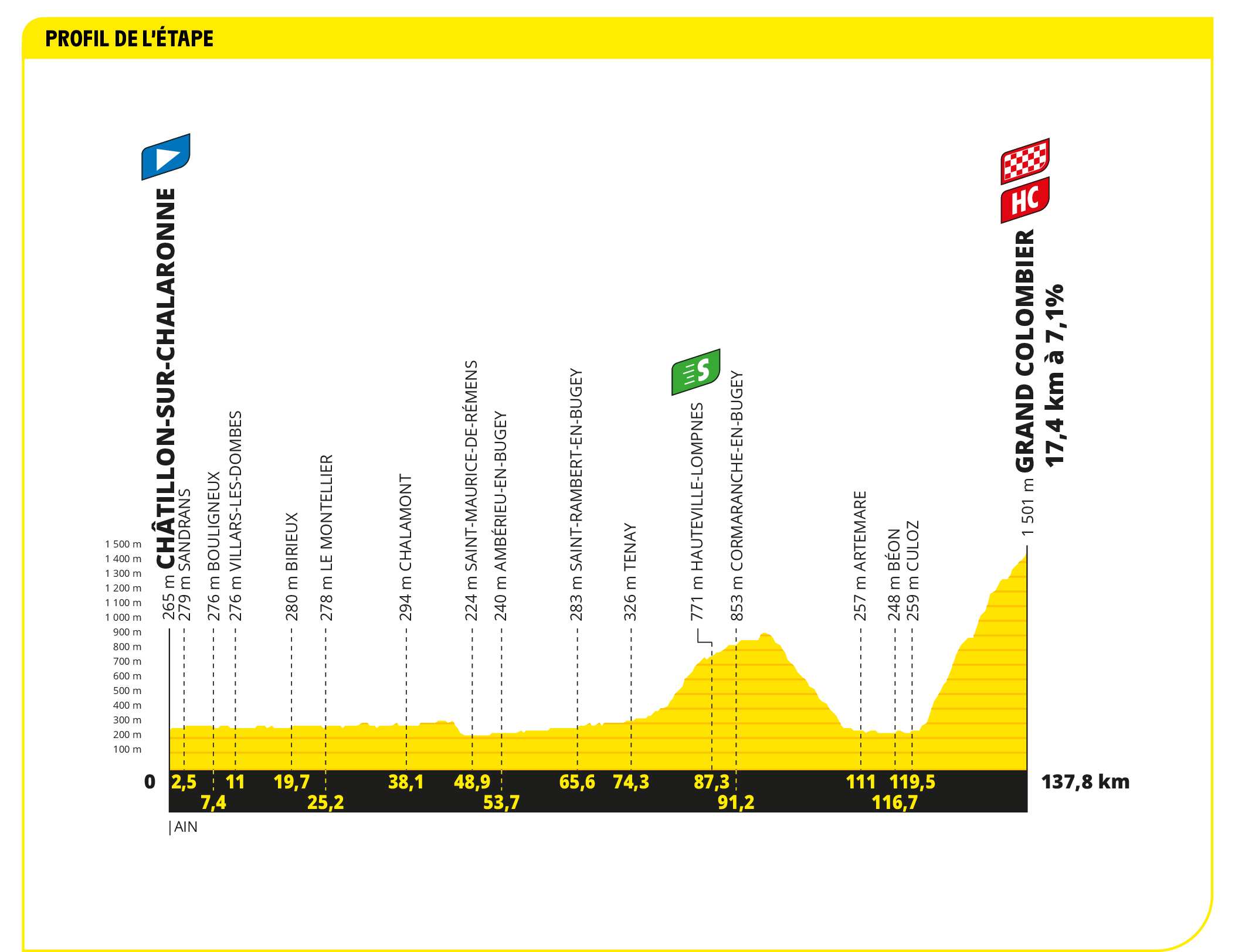
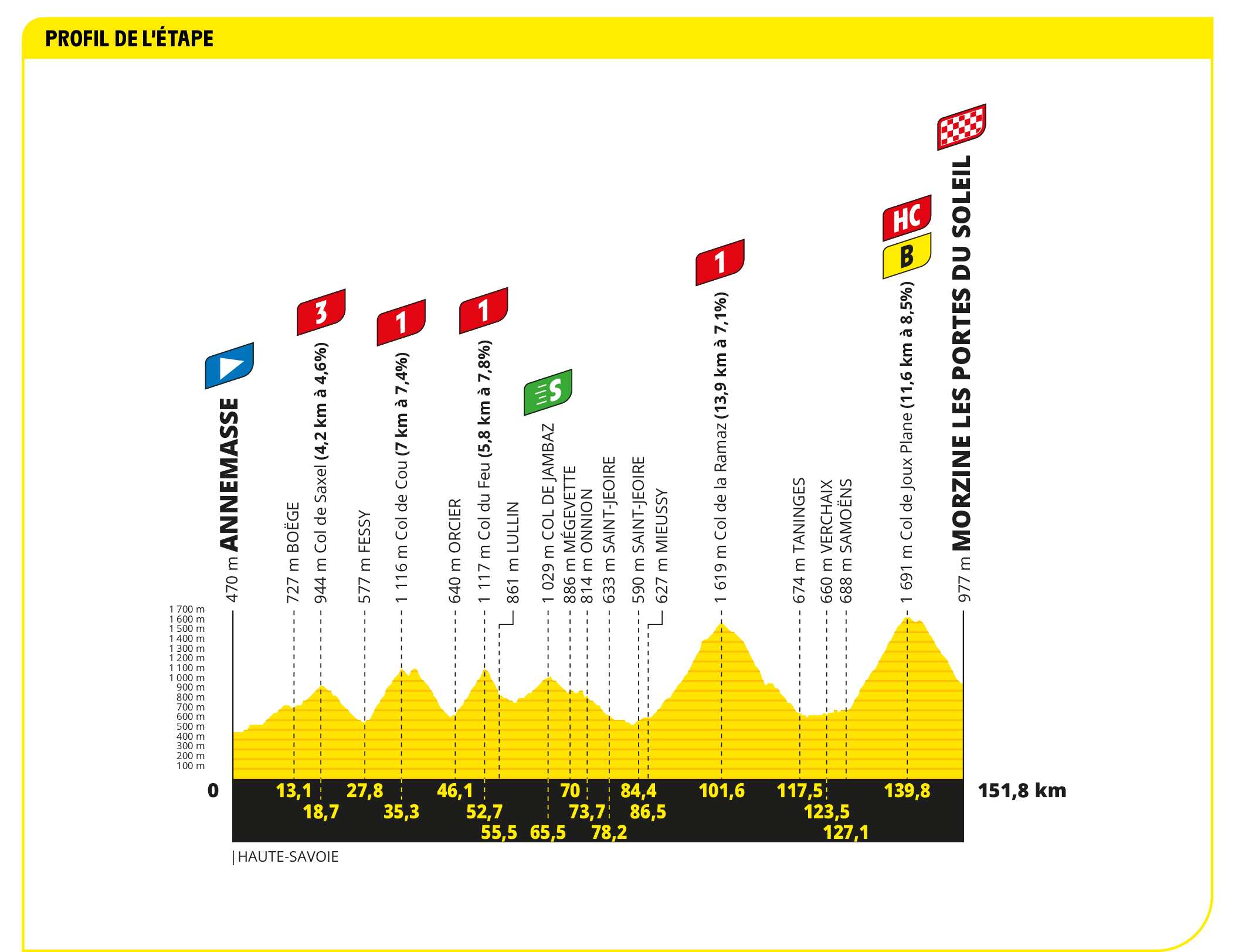
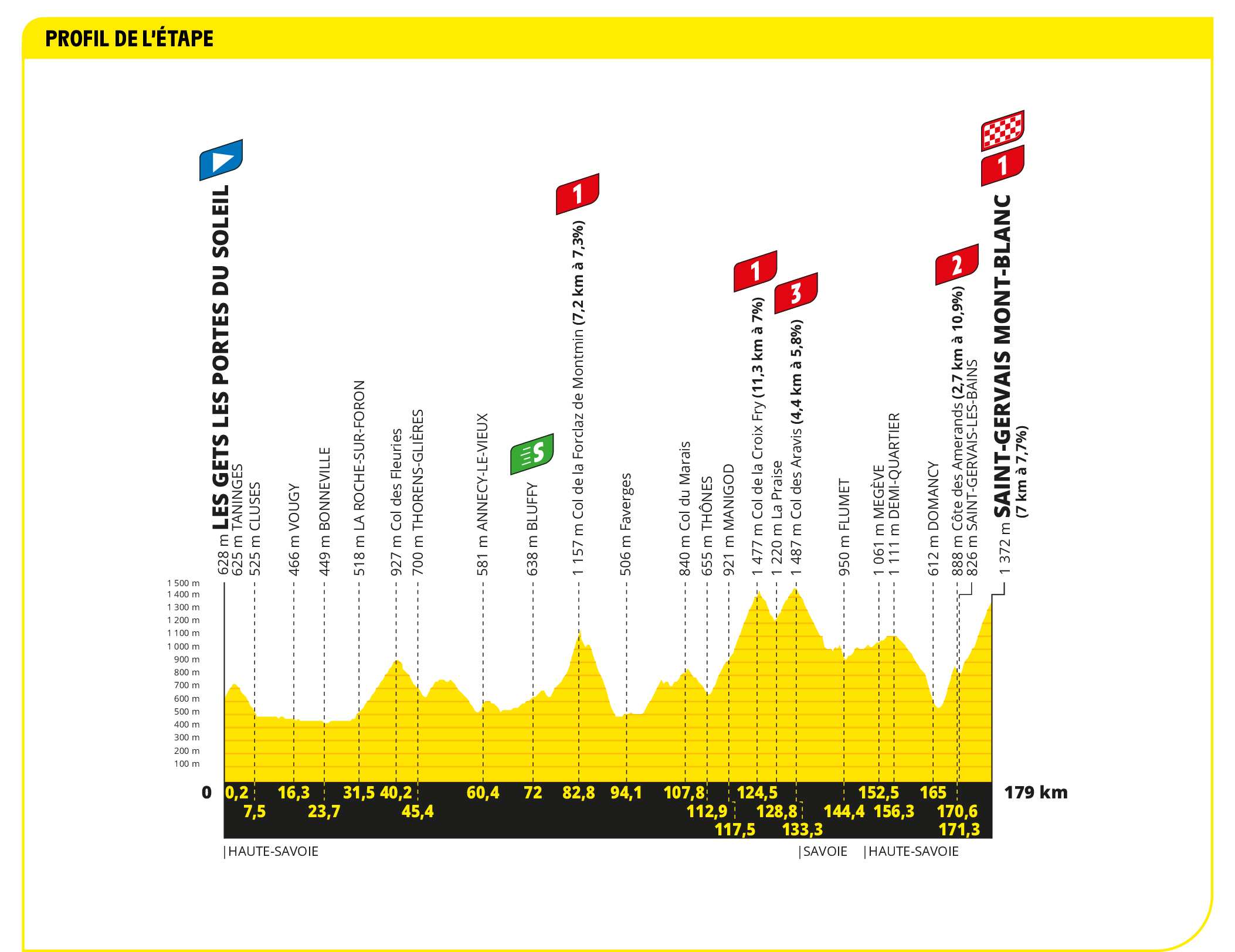
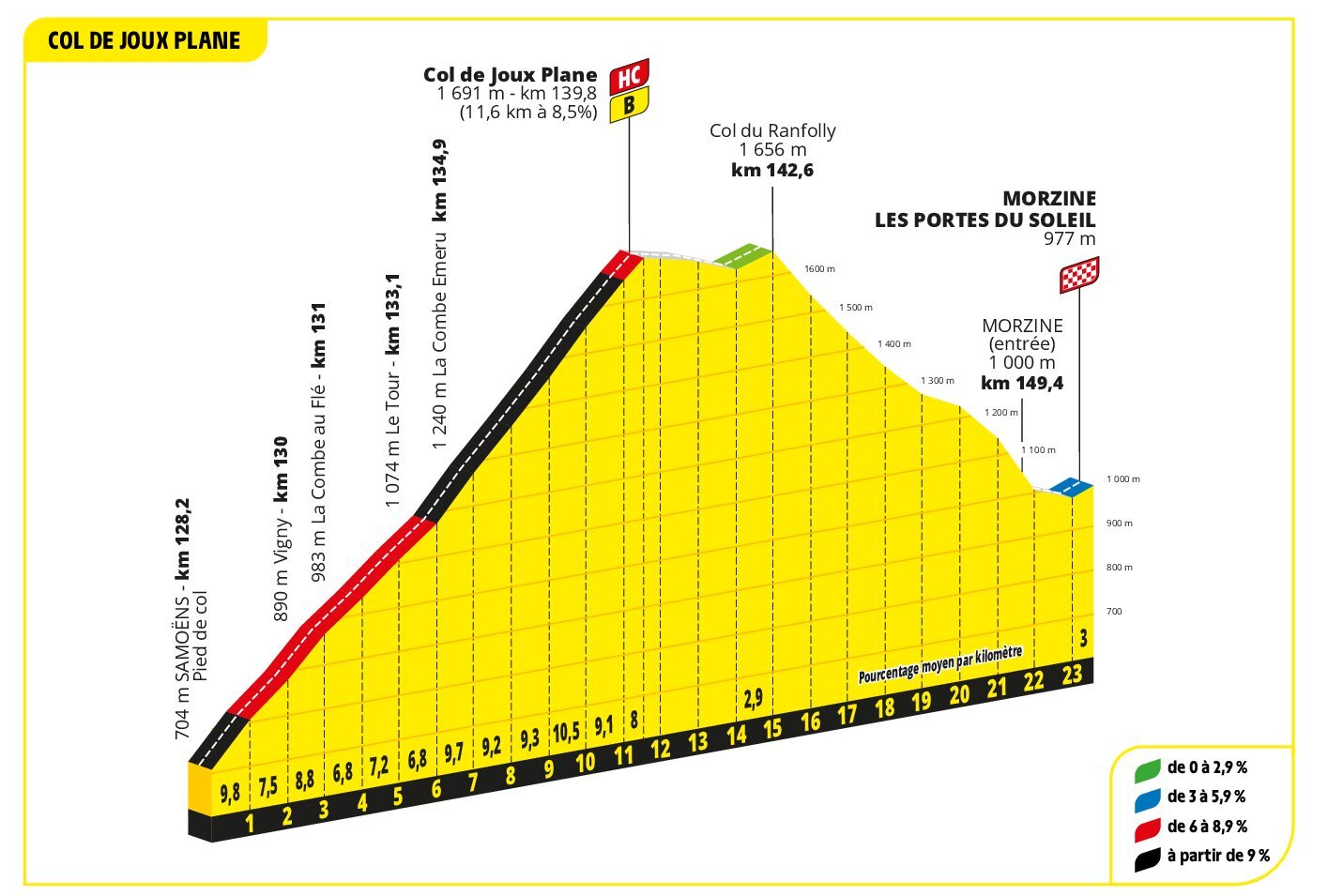
The scorecard for the three toughest days thus far, then, shows that Pogačar and Vingegaard decisively claimed a round each in the Pyrenees, before a rather tighter contest on the Puy de Dôme, from which each man seemed to claim positives. A split decision, in other words, at least in psychological terms.
The joust now enters a new phase, however, as the Tour reaches the Jura and Alps. It might be a stretch, as Vingegaard’s teammate Sepp Kuss suggested this week, that there “still hasn’t been a real mountain stage” on this Tour, but it’s certainly true that the next three days present a different kind of challenge to those faced thus far.
Above all, the triptych marks the first time in this Tour that riders will take on three successive mountain stages, with cumulative fatigue set to become an ever more decisive element as the weekend draws on.
On Friday’s stage 13, the peloton tackles an hors catégorie summit finish on the Grand Colombier (17.4km at 7.1%), where Pogacar won on the 2020 Tour. Stage 14 takes in the category 1 ascents of the Col de Cou, Col du Feu and Col de la Ramaz ahead of the hors catégorie climb of the Joux Plane and its notorious descent into Morzine. Stage 15, meanwhile, brings the race over the Col de la Forclaz, Col de la Croix Fry and Col des Aravis before a summit finish at Saint Gervais-Mont Blanc.
“I think Friday’s stage looks like the Pyrenees stages, I would say, but at the weekend, there are two really big mountain stages, especially Saturday,” Zeeman said. “That will be different to what we have done until now, with multiple climbs in it. A more tiring stage, I would say.”
Vingegaard expressed confidence during Monday’s rest day that his powers of endurance would begin to come to the fore once the Tour entered the Alps, with its succession of obstacles. Zeeman conceded, however, that Pogačar may very well be thinking along the same lines.
“I mean, if you go and ask the same question at the UAE bus, they would say the stages coming up are better for Pogačar,” Zeeman said. “We just have to see. It will be a cracking fight, but also the Tour will also not be decided after this weekend.”
Fernandez, for his part, was reluctant to single out any one of the troika of stages as being more decisive than the others, given the relative uniformity of Vingegaard and Pogačar’s abilities on just about every kind of mountainous terrain.
“I think it will depend on the condition of each rider on each day,” Fernandez said. “Some stages are more complicated than others, but they’re two very similar riders, so if they’re both at 100%, it’s difficult to make the difference.”
Teams
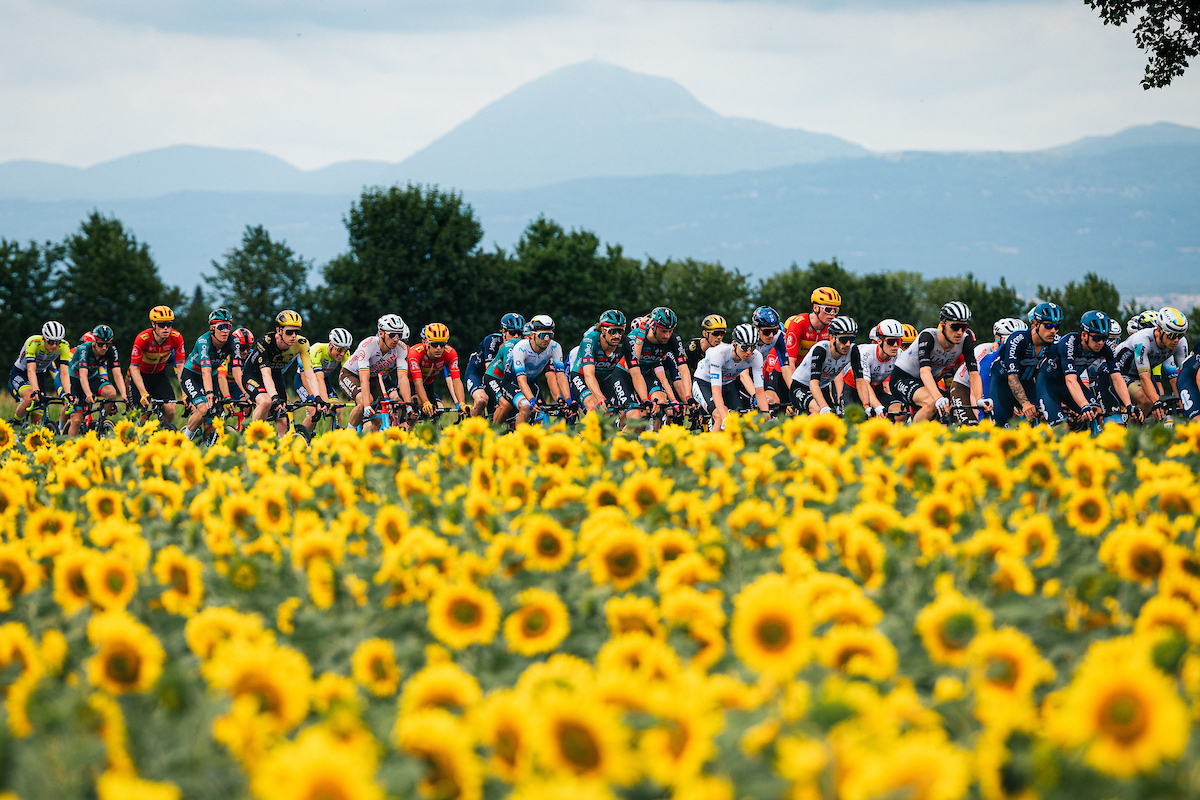
Pogacar and Vingegaard’s superiority over the rest of the Tour peloton was illustrated starkly by how rapidly they cruised clear of all others on the upper ramps of the Puy de Dôme, and it should be little different in the Jura and Alps over the next three days. But while the past two winners are, as Guillaume Martin (Cofidis) conceded on Vélo Club on Thursday evening, simply operating on a wholly different level to everybody else in this race, they are not racing in a vacuum.
On the Col du Granon and again on Hautacam a year ago, Jumbo-Visma’s strength in numbers played a key role in Vingegaard’s ultimate defeat of Pogacar, and the Dutch squad’s collective might was already to the fore on successive days in the Pyrenees, with Kuss and Wout van Aert delivering striking displays on their leader’s behalf.
The opening day in Bilbao aside, when Adam Yates took stage victory and the yellow jersey, Pogacar’s UAE Team Emirates squad have not quite scaled the same heights, but the Slovenian is already buoyed by the simple fact that all of his teammates are still around him at this juncture. Twelve months ago, after all, a cluster of COVID-19 cases and injuries left Pogacar with just three teammates – including the ill Marc Hirschi – in the final week. “Fighting in those conditions against Jumbo, who still had all their riders, was very difficult,” Fernandez admitted.
Despite the parity of numbers this time around, Jumbo-Visma will, one imagines, still try to bring their depth to bear on proceedings this weekend. While Friday’s stage up the Grand Colombier should present a rather uncomplicated mano a mano between the two favourites, much like the Puy de Dôme, greater strategic considerations should come into play in the Alps.
UAE, for instance, might be tempted to make use of the proximity of Adam Yates, sixth at 4:39, in the overall standings, though it’s striking, too, that Jumbo-Visam’s Kuss remains 10th at 6:45. The US rider is nominally Vingegaard’s last man in the mountains, but that doesn’t mean he won’t be deployed in a different role if the circumstances allow it.
“Behind everything there is a reason, eh,” Zeeman said. “More I cannot tell you, of course. That’s up to you guys, to make an idea about it and speculate.”
The margins are still tight, and the permutations seemingly endless.

Barry Ryan was Head of Features at Cyclingnews. He has covered professional cycling since 2010, reporting from the Tour de France, Giro d’Italia and events from Argentina to Japan. His writing has appeared in The Independent, Procycling and Cycling Plus. He is the author of The Ascent: Sean Kelly, Stephen Roche and the Rise of Irish Cycling’s Golden Generation, published by Gill Books.